Submitted:
04 August 2024
Posted:
05 August 2024
You are already at the latest version
Abstract
Keywords:
1. Introduction
2. Problem Description
2.1. Mathematical Description of Distributed Parameter Systems and Its Characteristics
2.2. Three-dimensional Fuzzy Modeling
3. SPSA Learning Based Three-Dimensional Fuzzy Modeling
3.1. Modeling Methodology
3.2. AP Clustering Learning for Preceding Components of Three-dimensional Fuzzy Rule
3.3. SPSA Learning for Resulting Components of Three-dimensional Fuzzy Rule
3.3.1. Fourier Space Base Function
3.3.2. Parameter Learning Using SPSA Algorithm
3.3.3. Three-dimensional Fuzzy Modeling Flowchart
4. Application to RTCVD System
4.1. RTCVD System
4.2. SPSA Learning Based Three-dimensional Fuzzy Modeling
4.3. Simulation Comparison
| model | AP-Fourier-SPSA-3D | AP-Fourier-GD-3D | NNC-SVR-3D | KL-LS |
|---|---|---|---|---|
| Training data | 0.9229 | 0.9899 | 1.2862 | 2.4481 |
| Test data | 0.9027 | 0.9558 | 1.2214 | 2.2903 |
5. Conclusions
Author Contributions
Funding
Institutional Review Board Statement
Informed Consent Statement
Data Availability Statement
Conflicts of Interest
Appendix A
Appendix Algorithm Description of AP Clustering and Its Flow Chart
References
- Christofides, P. D.; Chow, J. Nonlinear and Robust Control of PDE Systems: Methods and Applications to Transport-Reaction Processes. Appl. Mech. Rev. 2002, 55, B29–B30. [Google Scholar] [CrossRef]
- Wang, Z. P.; Wu, H. N.; Chadli, M. H∞ Sampled-Data Fuzzy Observer Design for Nonlinear Parabolic PDE Systems. IEEE Trans. Fuzzy Syst. 2020, 29, 1262–1272. [Google Scholar] [CrossRef]
- Braess, D.; Schumaker, L. L. Finite Elements: Theory, Fast Solvers, and Applications in Elasticity Theory; Cambridge University Press: Cambridge, UK, 2007. [Google Scholar]
- Lu, X. J.; Zou, W.; Huang, M. H. A Novel Spatiotemporal LS-SVM Method for Complex Distributed Parameter Systems with Applications to Curing Thermal Process. IEEE Trans. Ind. Inf. 2016, 12, 1156–1165. [Google Scholar] [CrossRef]
- Wang, M. L.; Li, N.; Li, S. Y. Model-Based Predictive Control for Spatially-Distributed Systems Using Dimensional Reduction Models. Int. J. Autom. Comput. 2011, 8, 1–7. [Google Scholar] [CrossRef]
- Li, H. X.; Qi, C. K. Modeling of Distributed Parameter Systems for Applications—A Synthesized Review from Time-Space Separation. J. Process Control 2010, 20, 891–901. [Google Scholar] [CrossRef]
- Li, H. X.; Qi, C. K. Spatio-Temporal Modeling of Nonlinear Distributed Parameter Systems: A Time/Space Separation Based Approach; Springer Science & Business Media: Berlin, Germany, 2011. [Google Scholar]
- Fan, Y. J.; Xu, K. K.; Wu, H.; Zheng, Y.; Tao, B. Spatiotemporal Modeling for Nonlinear Distributed Thermal Processes Based on KL Decomposition, MLP and LSTM Network. IEEE Access 2020, 8, 25111–25121. [Google Scholar] [CrossRef]
- Zhang, X. X.; Zhao, L. R.; Li, H. X.; Ma, S. W. A Novel Three-Dimensional Fuzzy Modeling Method for Nonlinear Distributed Parameter Systems. IEEE Trans. Fuzzy Syst. 2018, 27, 489–501. [Google Scholar] [CrossRef]
- Wang, M. L.; Qi, C. K.; Yan, H. C.; Shi, H. B. Hybrid Neural Network Predictor for Distributed Parameter System Based on Nonlinear Dimension Reduction. Neurocomputing 2016, 171, 1591–1597. [Google Scholar] [CrossRef]
- Zhang, R. D.; Tao, J. L.; Lu, R. Q.; Jin, Q. B. Decoupled ARX and RBF Neural Network Modeling Using PCA and GA Optimization for Nonlinear Distributed Parameter Systems. IEEE Trans. Neural Netw. Learn. Syst. 2016, 29, 457–469. [Google Scholar] [CrossRef] [PubMed]
- Zhang, X. X.; Fu, Z. Q.; Li, S. Y.; Zou, T.; Wang, B. A Time/Space Separation Based 3D Fuzzy Modeling Approach for Nonlinear Spatially Distributed Systems. Int. J. Autom. Comput. 2018, 15, 52–65. [Google Scholar] [CrossRef]
- Frey, B. J.; Dueck, D. Clustering by Passing Messages Between Data Points. Science 2007, 315, 972–976. [Google Scholar] [CrossRef]
- Deng, H.; Li, H. X.; Chen, G. Spectral-Approximation-Based Intelligent Modeling for Distributed Thermal Processes. IEEE Trans. Control Syst. Technol. 2005, 13, 686–700. [Google Scholar] [CrossRef]
- Meng, X. B.; Chen, C. L. P.; Li, H. X. Confidence-Aware Multiscale Learning for Online Modeling of Distributed Parameter Systems with Application to Curing Process. IEEE Trans. Ind. Electron. 2023, 70, 9432–9440. [Google Scholar] [CrossRef]
- Wei, P.; Li, H. X. Two-Dimensional Spatial Construction for Online Modeling of Distributed Parameter Systems. IEEE Trans. Ind. Electron. 2022, 69, 10227–10235. [Google Scholar] [CrossRef]
- Feng, Y.; Zhu, X. Y.; Wang, Y. N.; Wang, B. C.; Zhang, H.; Wu, Z. G.; Yan, H. C. PDE Model-Based On-Line Cell-Level Thermal Fault Localization Framework for Batteries. IEEE Trans. Syst. Man Cybern. Syst. 2024, 54, 2507–2516. [Google Scholar] [CrossRef]
- Li, H. X.; Zhang, X. X.; Li, S. Y. A Three-Dimensional Fuzzy Control Methodology for a Class of Distributed Parameter Systems. IEEE Trans. Fuzzy Syst. 2007, 15, 470–481. [Google Scholar] [CrossRef]
- Zhang, X. X.; Jiang, Y.; Li, H. X.; Li, S. Y. SVR Learning-Based Spatiotemporal Fuzzy Logic Controller for Nonlinear Spatially Distributed Dynamic Systems. IEEE Trans. Neural Netw. Learn. Syst. 2013, 24, 1635–1647. [Google Scholar] [CrossRef] [PubMed]
- Spall, J. C. Introduction to Stochastic Search and Optimization: Estimation, Simulation, and Control; John Wiley & Sons: Hoboken, NJ, USA, 2005. [Google Scholar]
- Theodoropoulou, A.; Adomaitis, R. A.; Zafiriou, E. Model Reduction for Optimization of Rapid Thermal Chemical Vapor Deposition Systems. IEEE Trans. Semicond. Manuf. 1998, 11, 85–98. [Google Scholar] [CrossRef]
- Adomaitis, R. A. A Reduced-Basis Discretization Method for Chemical Vapor Deposition Reactor Simulation. Math. Comput. Model. 2003, 38, 159–175. [Google Scholar] [CrossRef]
- Qi, C. K.; Li, H.-X. A Karhunen-Loève Decomposition-Based Wiener Modeling Approach for Nonlinear Distributed Parameter Processes. Ind. Eng. Chem. Res. 2008, 47, 4184–4192. [Google Scholar] [CrossRef]
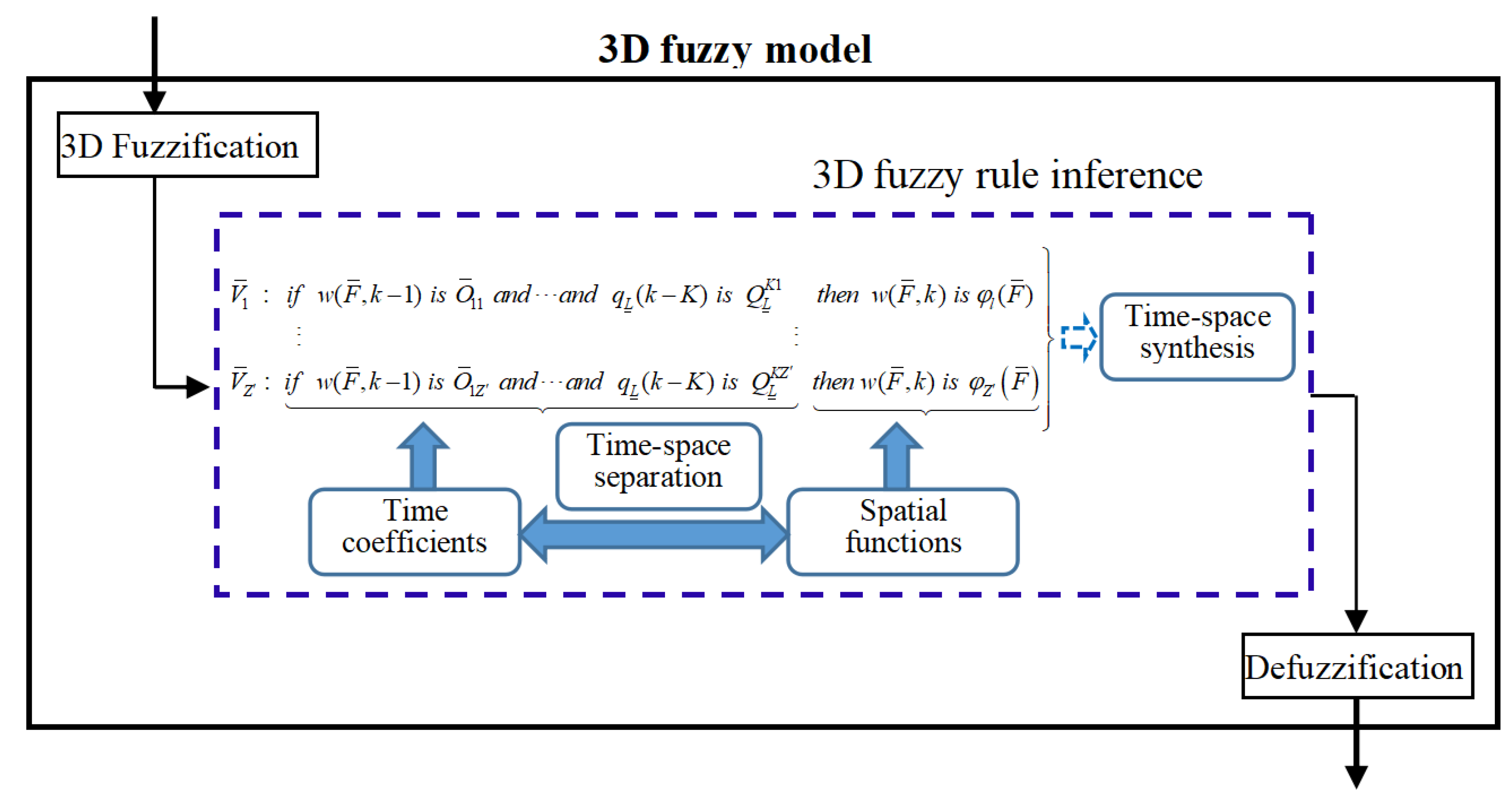

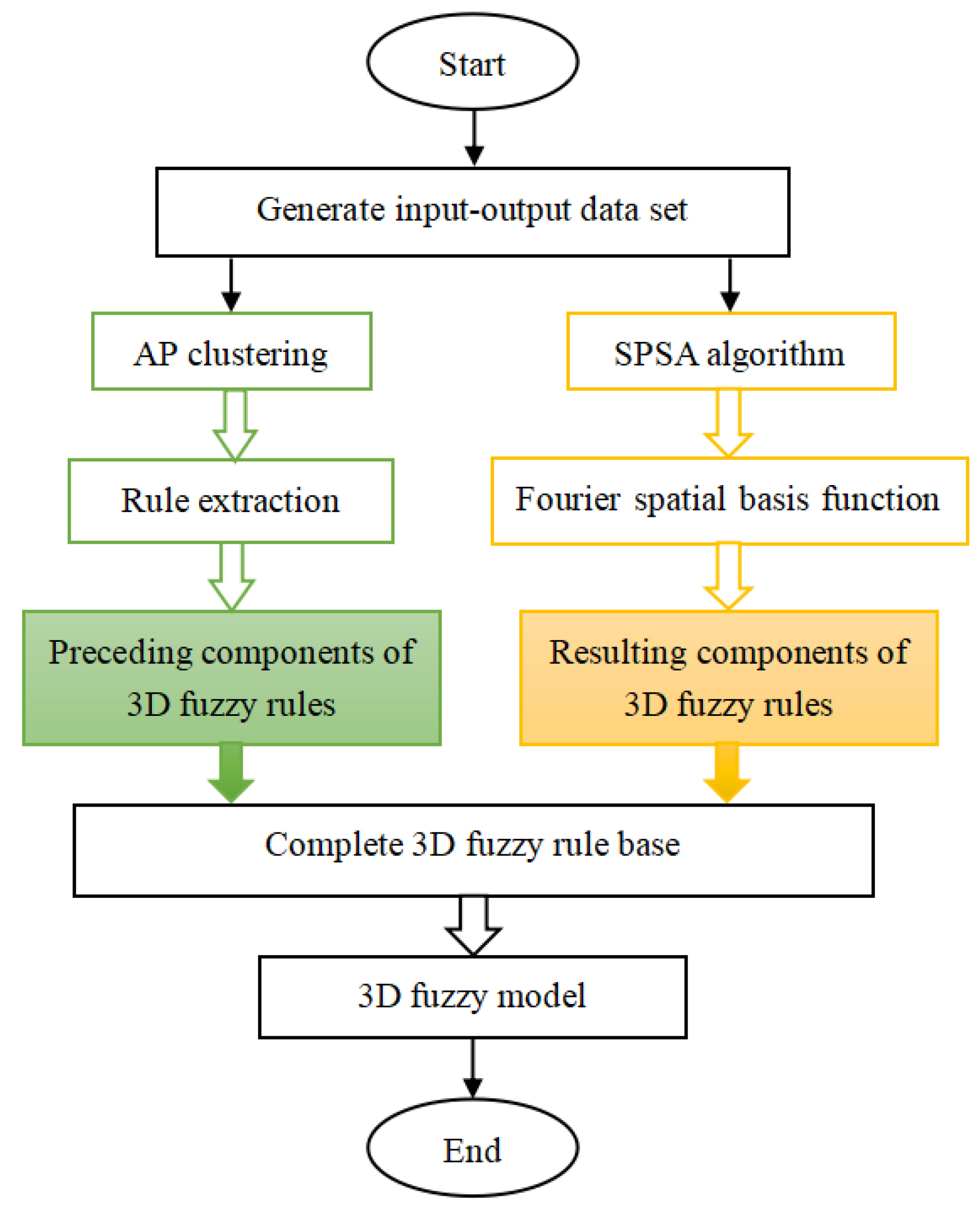
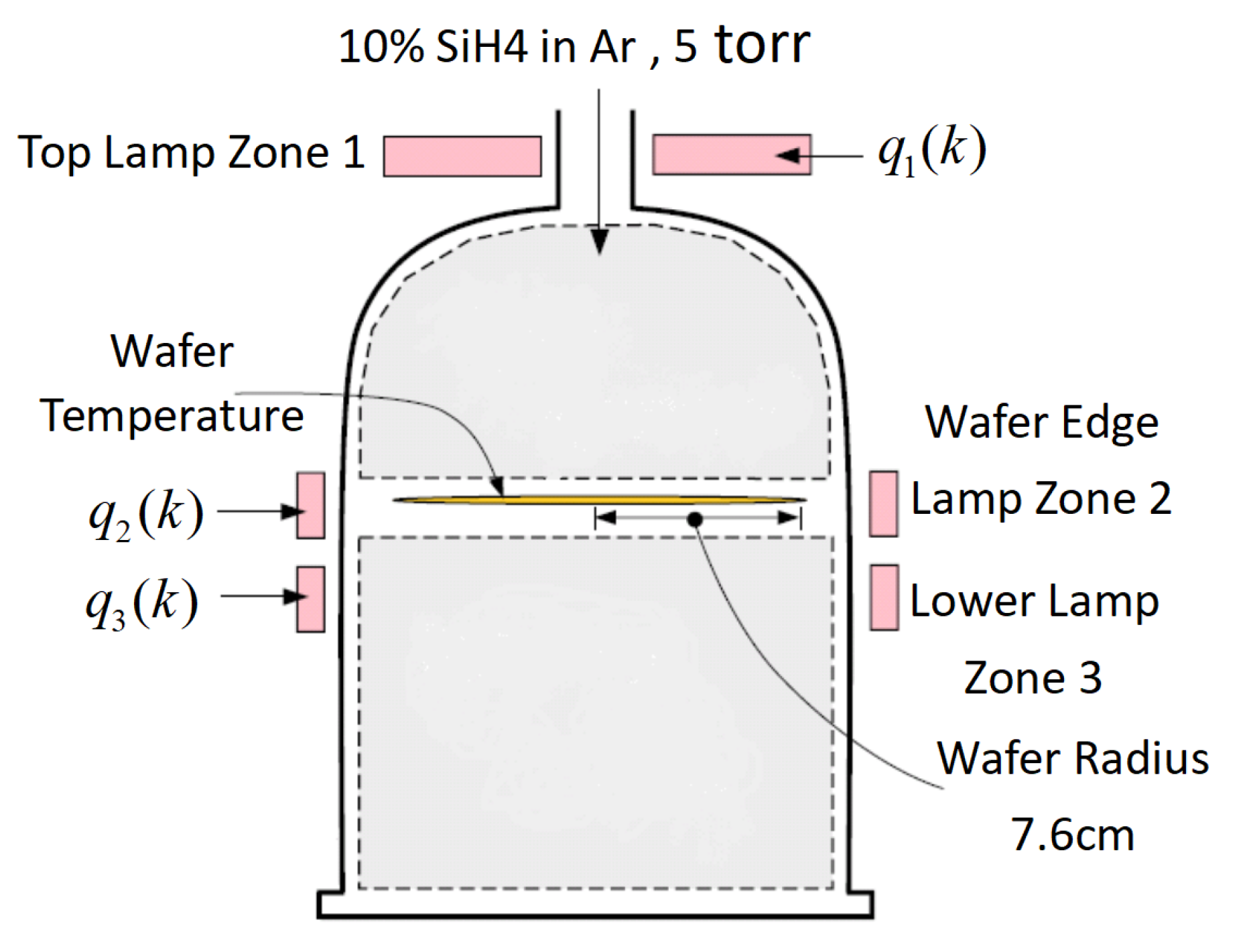
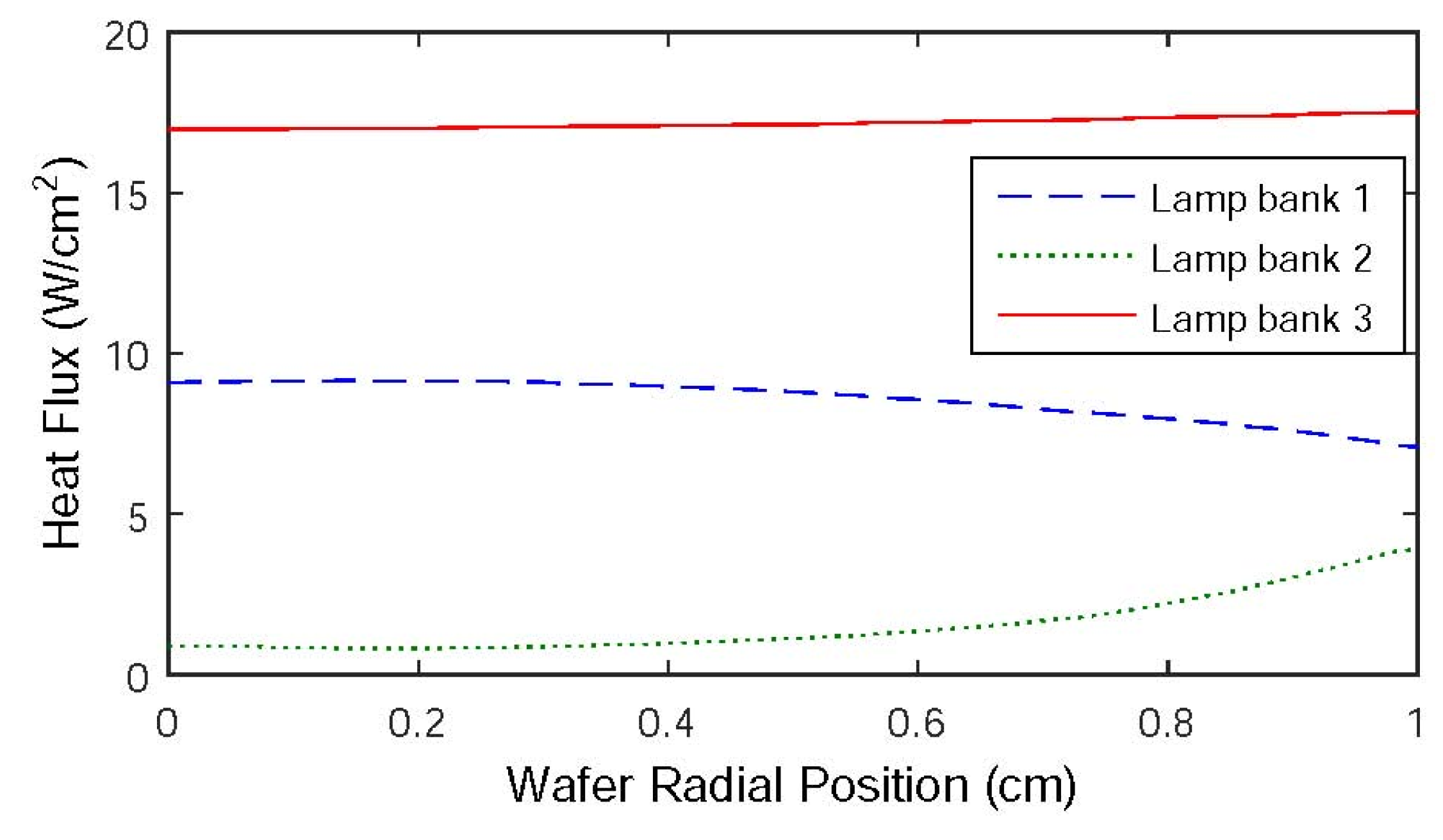
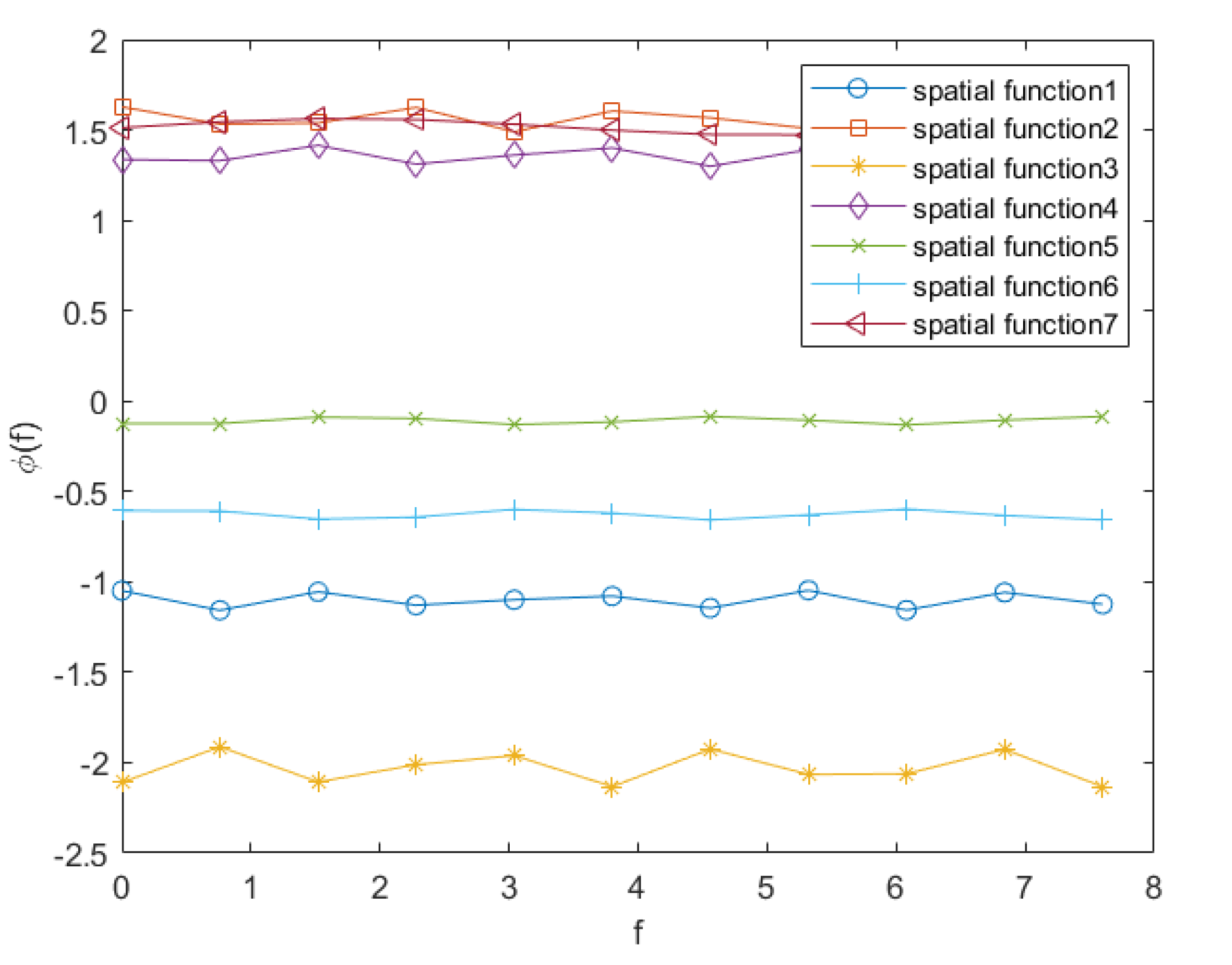
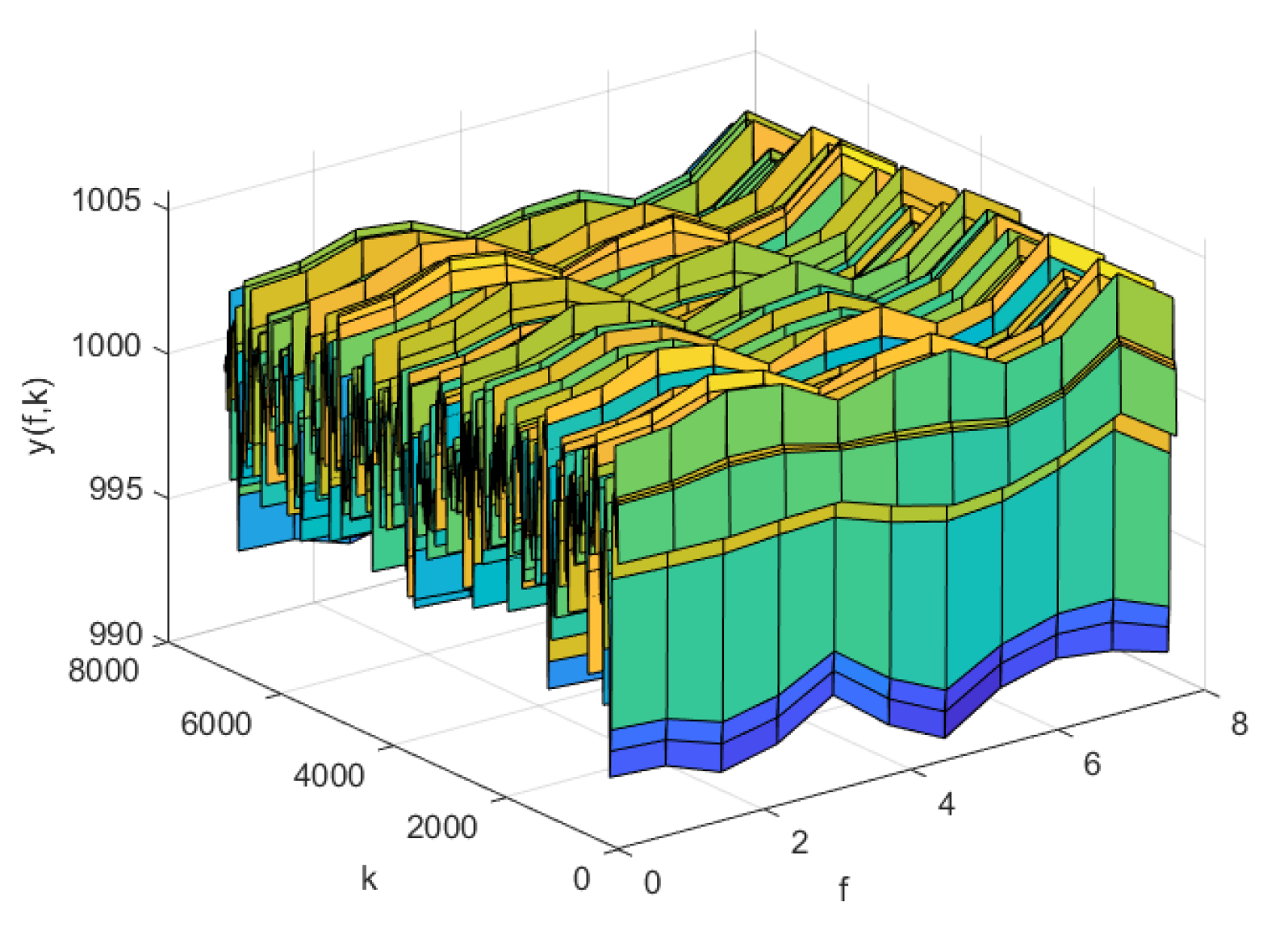
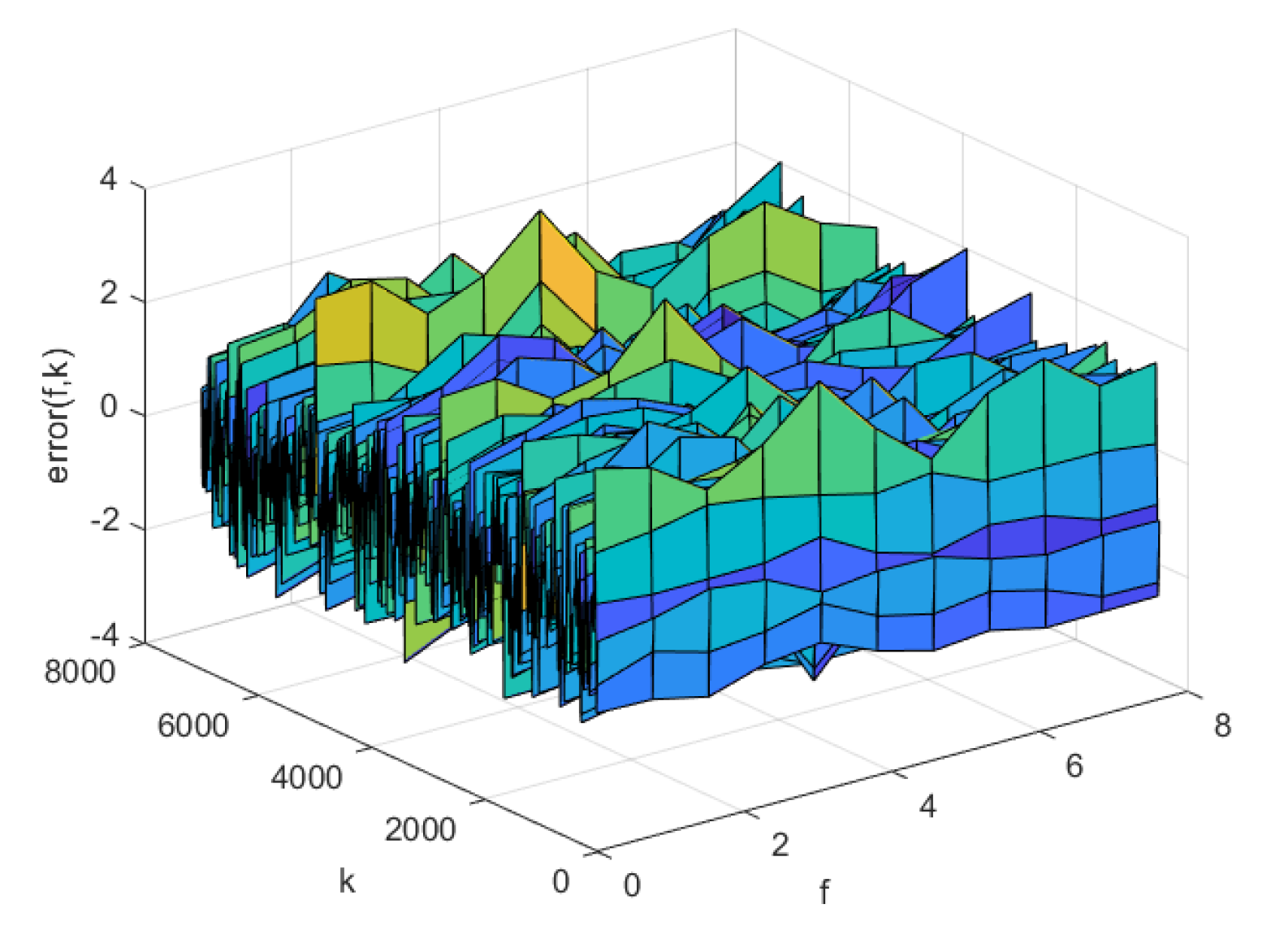
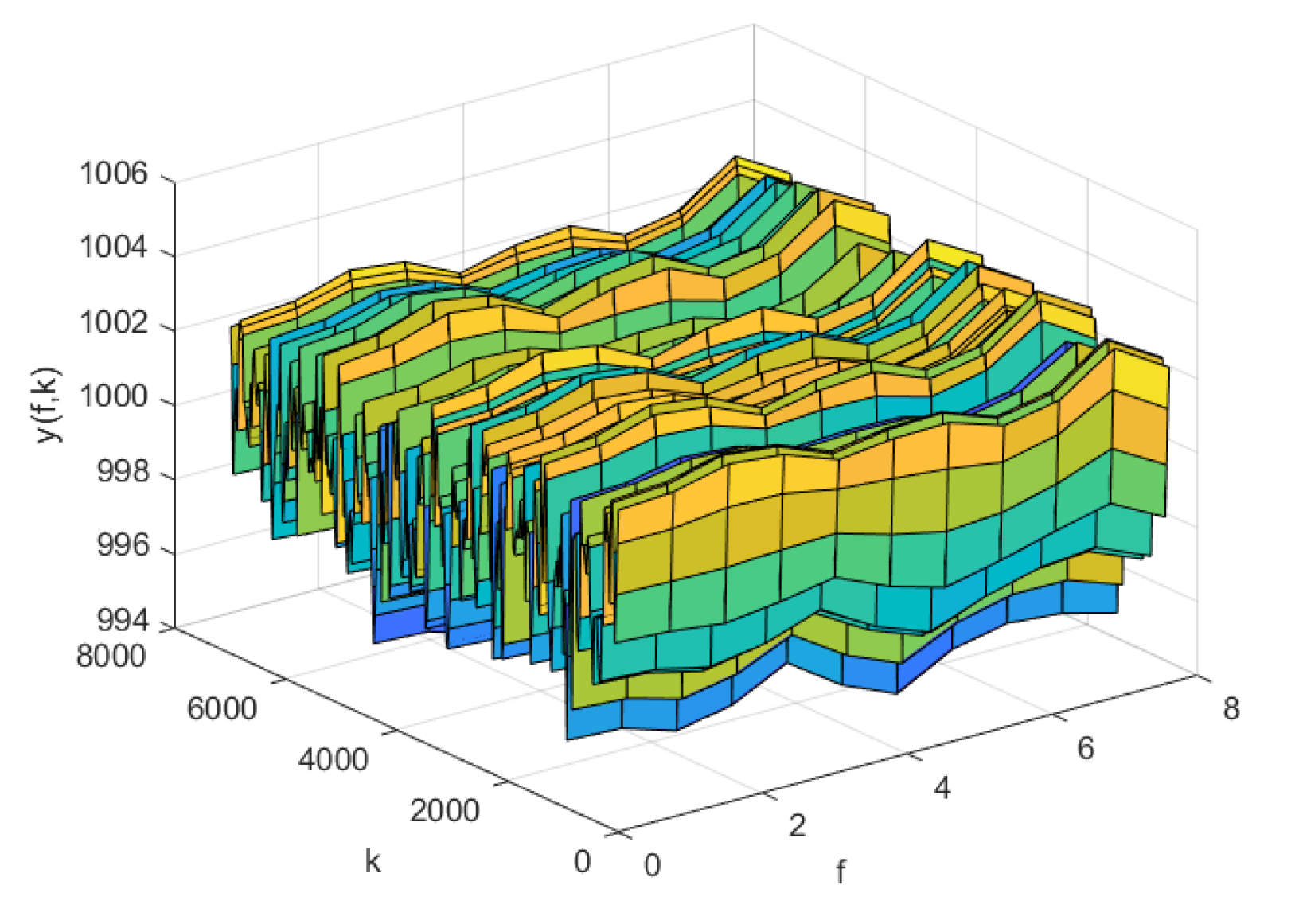
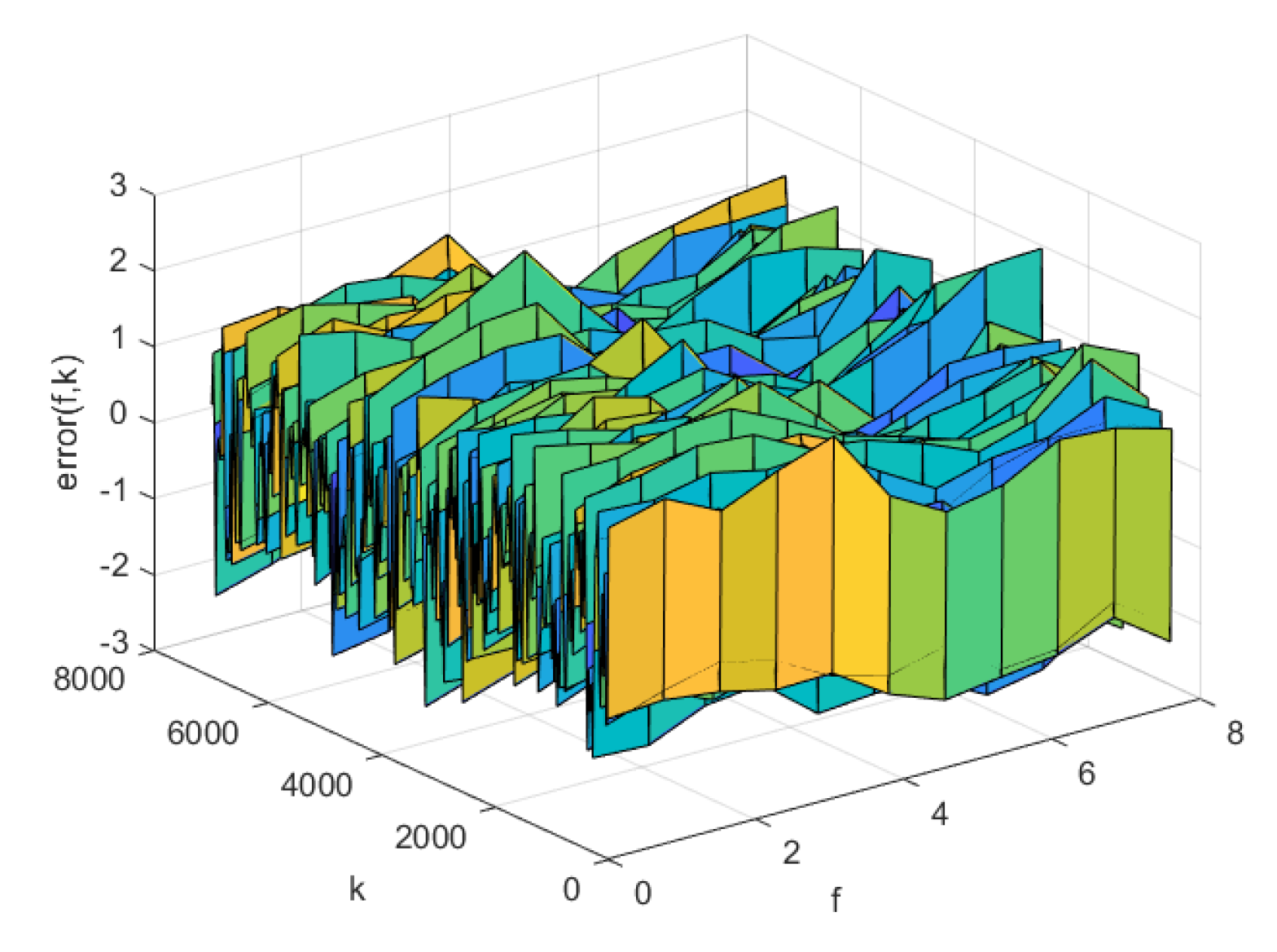
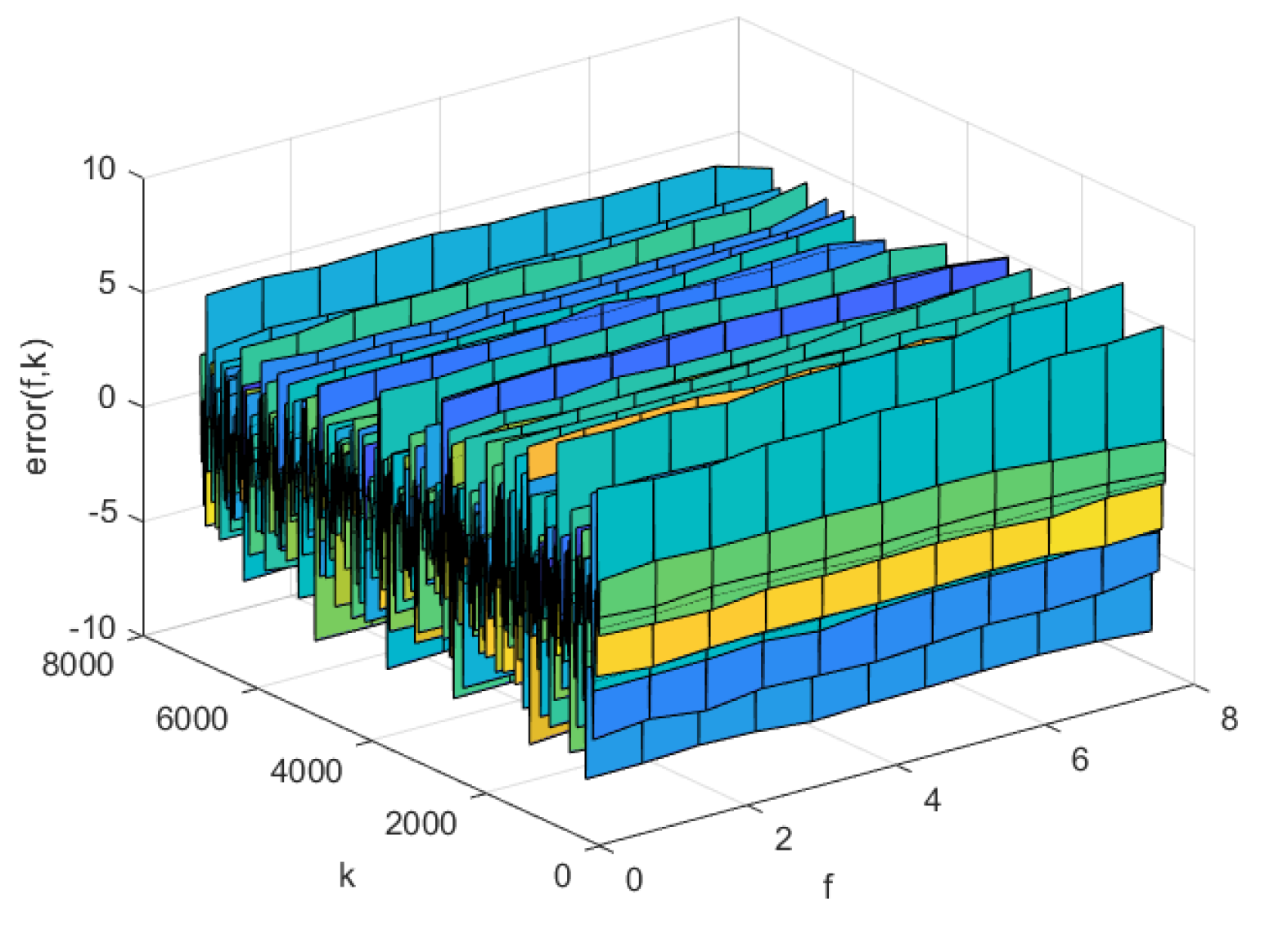
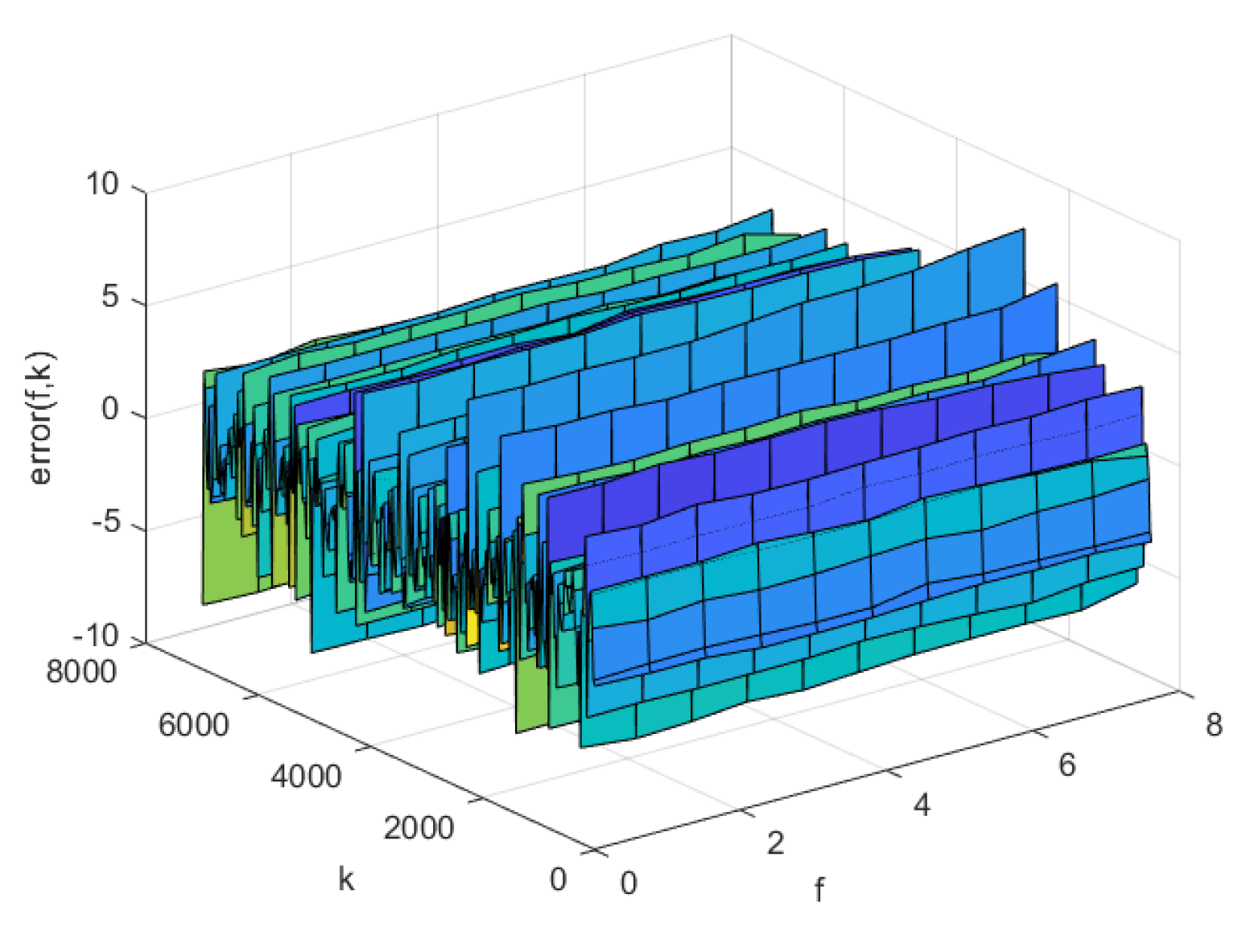
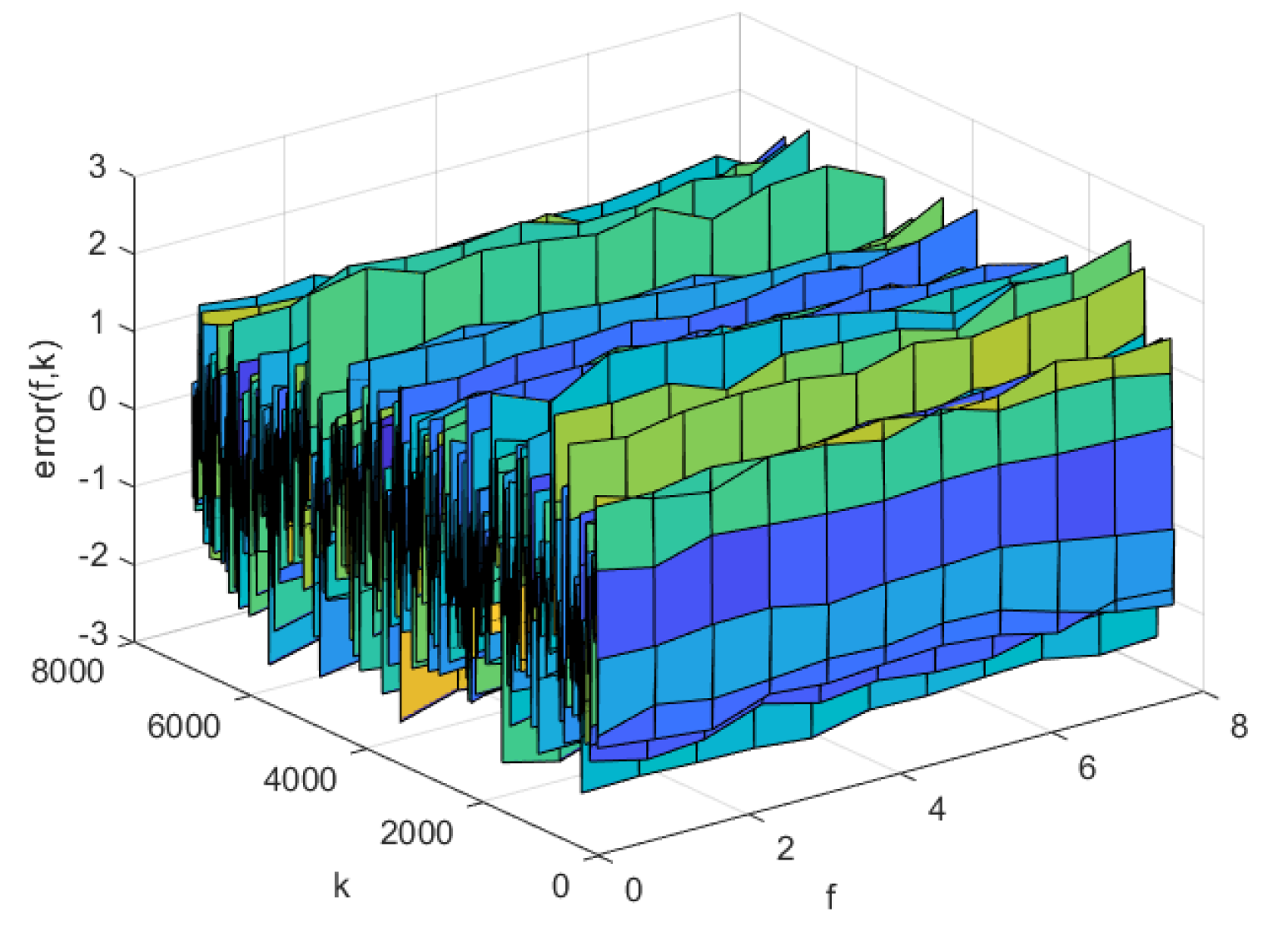
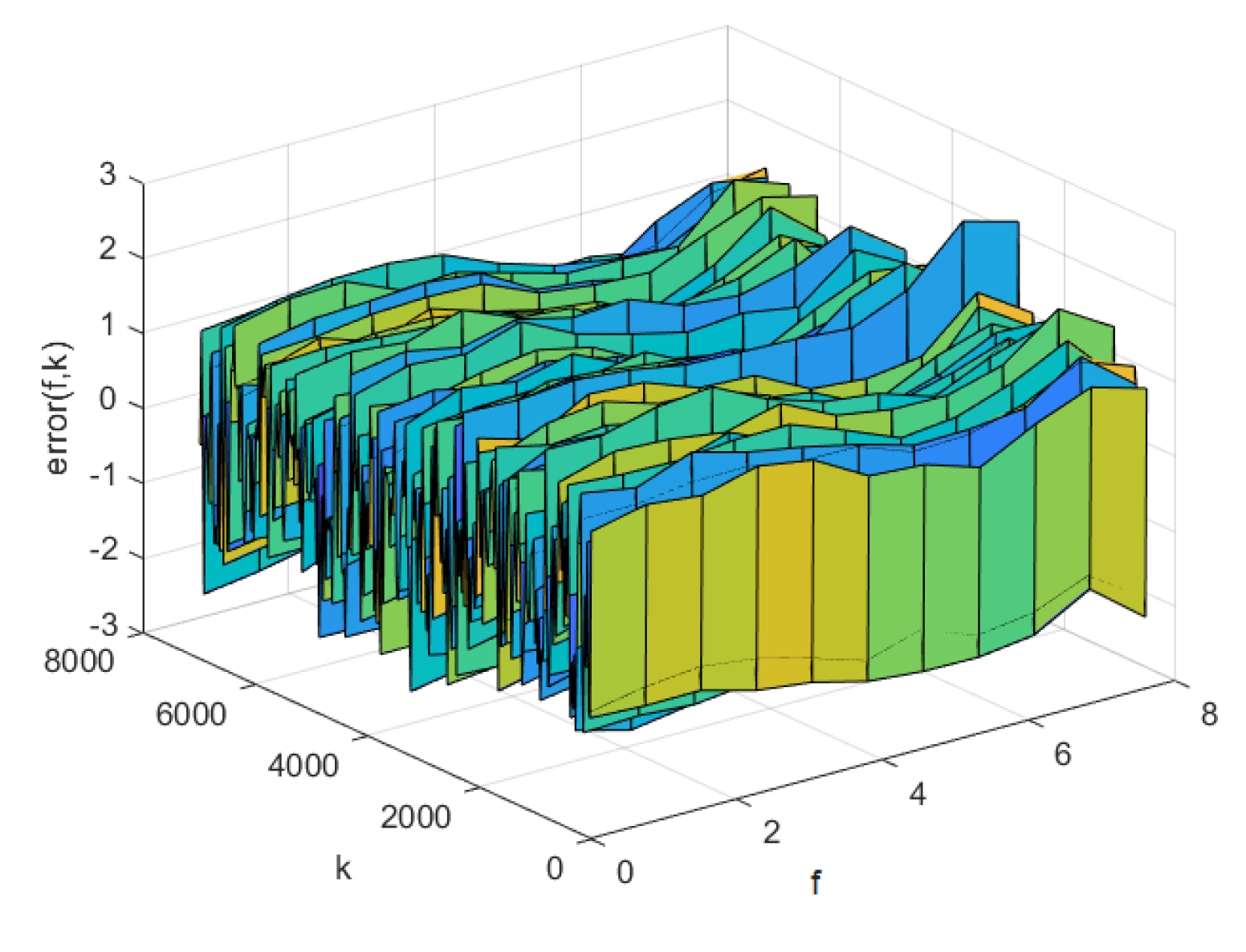
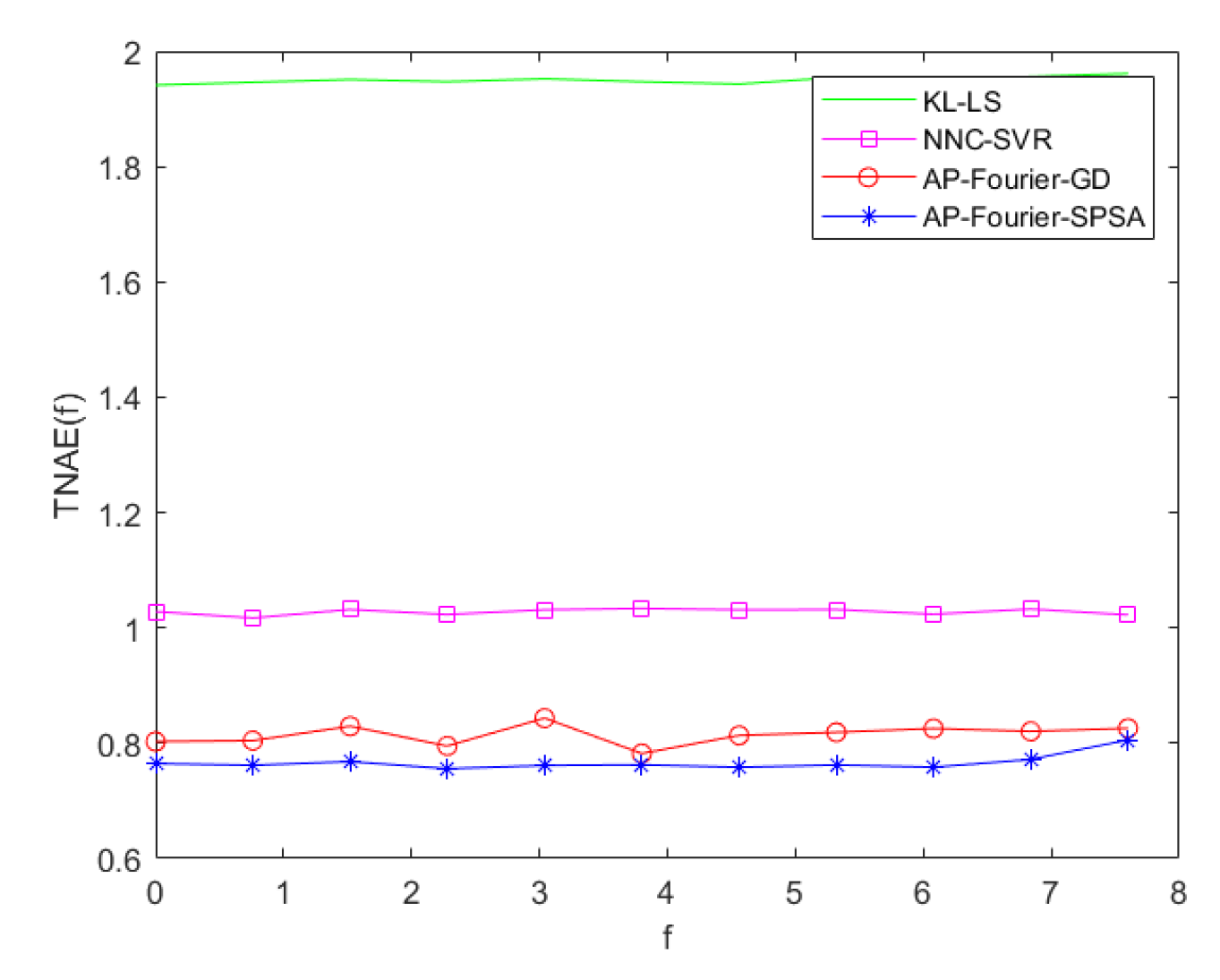
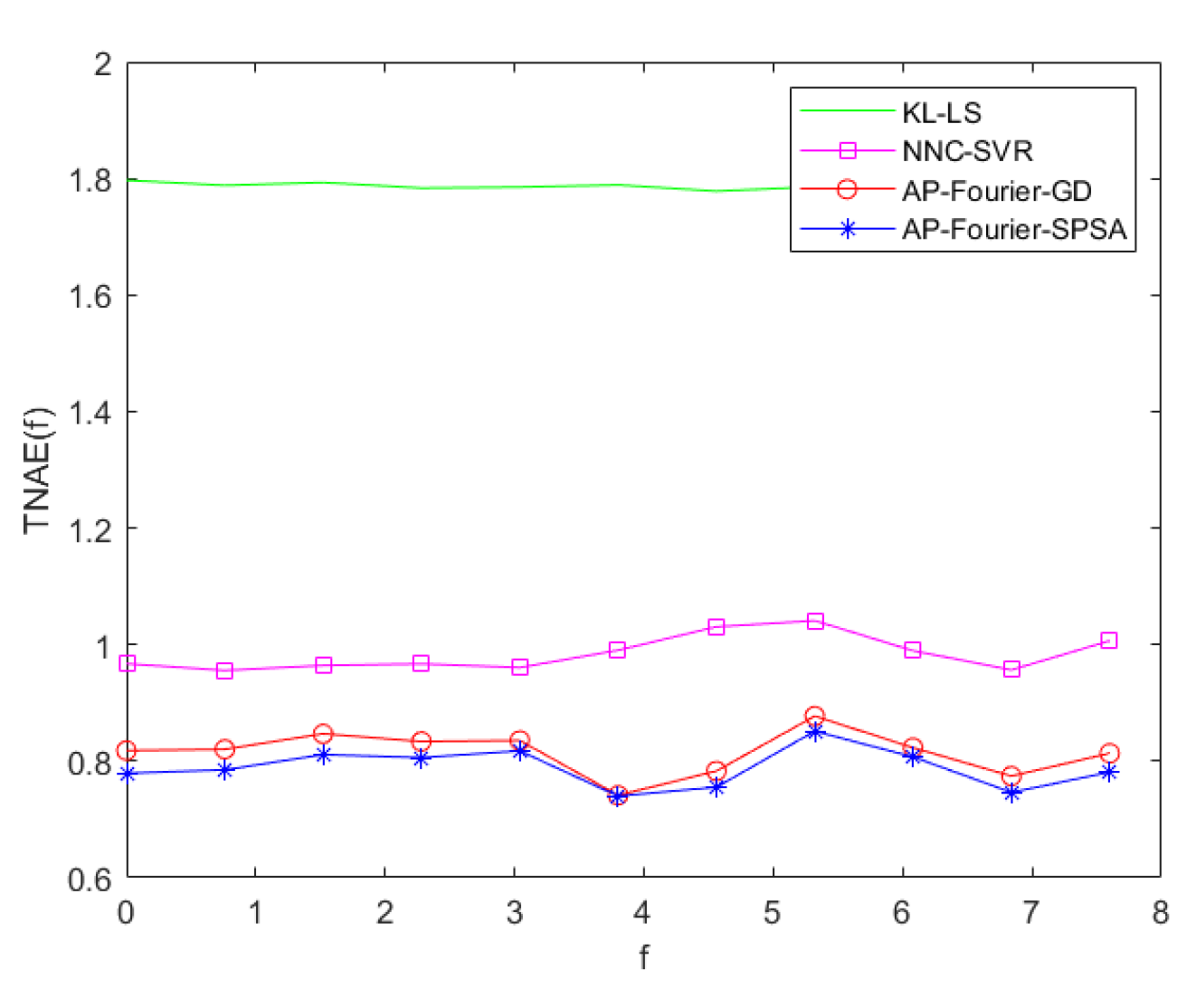
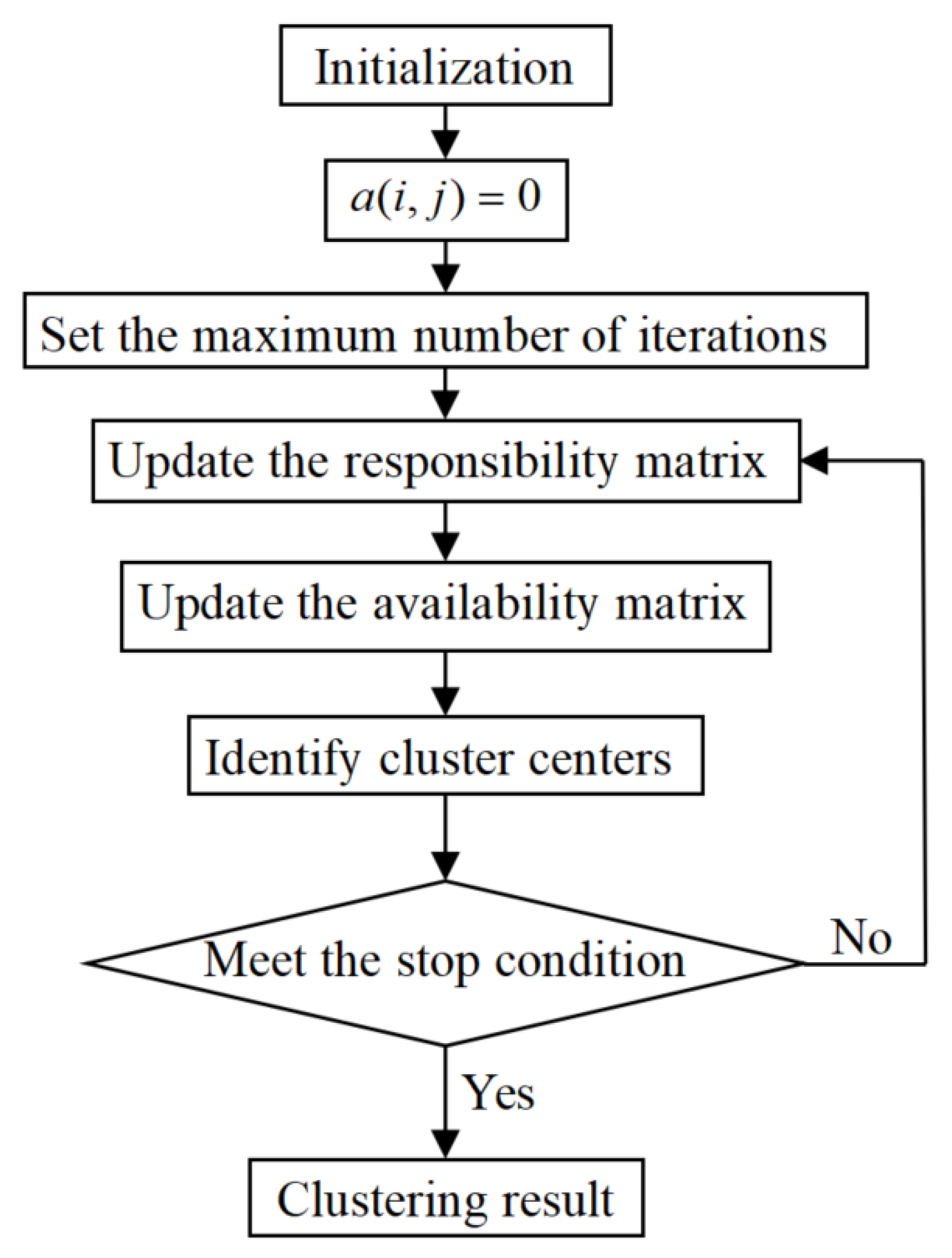
Disclaimer/Publisher’s Note: The statements, opinions and data contained in all publications are solely those of the individual author(s) and contributor(s) and not of MDPI and/or the editor(s). MDPI and/or the editor(s) disclaim responsibility for any injury to people or property resulting from any ideas, methods, instructions or products referred to in the content. |
© 2024 by the authors. Licensee MDPI, Basel, Switzerland. This article is an open access article distributed under the terms and conditions of the Creative Commons Attribution (CC BY) license (http://creativecommons.org/licenses/by/4.0/).




